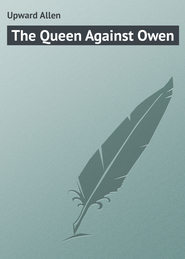По всем вопросам обращайтесь на: info@litportal.ru
(©) 2003-2024.
✖
Athelstane Ford
Настройки чтения
Размер шрифта
Высота строк
Поля
“Captain Wilding, I have done what you ordered me in impressing these men. If you don’t think them serviceable I shall be happy to set them ashore again.”
The other waved his napkin between them as if he would have brushed away a fly.
“There, there, my worthy man, that is quite enough! I have seen the tarry scoundrels, and as long as they have not the smallpox, I am content. Bestow them as you please.”
Thereupon we were led into the fore part of the ship, to be rated according to our several abilities. And it fell out luckily for me, for the lieutenant, when he discovered that I had had some education, and could cast accounts – a business of which he plainly knew nothing – informed me that he believed the purser stood in need of an assistant, and offered to recommend me to him. This kindness on his part I gladly closed with, not that I liked the duty better than the common service of a ship, but because I guessed that I should thereby be delivered from the molestations of the crew, there being no greater pleasure to the vulgar of every profession than to rough-handle and abuse those who come newly amongst them. And herein, as it turned out, I had judged rightly, and for so long as I remained upon that ship I suffered no ill-usage, except at the hands of my superiors.
But before this was settled I had a favour to ask of the worthy lieutenant.
“One thing I must bargain for, with your leave, Lieutenant Griffiths,” I said to him, speaking boldly, as I discerned him to be favourable to me, “and that is, that if we should come to fighting with the enemy I am to take part with the rest.”
Mr. Griffiths laughed when he heard this demand.
“Why, there now,” he cried, slapping his thigh, “if I couldn’t have sworn that you were one of the sort we wanted directly I clapped eyes on you! Never fear, lad, you shall have your fill of fighting before we go into dock again; for – I will tell you so much – we are under orders to join Admiral Watson’s fleet at the Nore, and a man with a healthier stomach for such work never hoisted pennant on a three-decker.”
“I am glad, at all events, that we shall sail under a fighting admiral,” I responded saucily, “for, as for our captain – ”
He stopped me at this point in a manner which terrified me, hurling a string of curses at my head sufficient to have sunk me through the deck.
“Hold your impertinent tongue!” he said in conclusion. “I would have you know better than to pass remarks on your officers in my hearing. I have had men put in irons for less. Follow me this minute to the purser, and remember you are on board of one of his Majesty’s ships, and not a dirty herring smack.”
By which I saw that, however this gentleman secretly despised his commanding officer, he was too honourable to encourage the tattle of his inferiors. In this no doubt he showed his breeding; for it was his boast that he was sprung from one of the most ancient families in Wales, where the gentry, he was wont to say, are of older lineage than those of any other country in the world.
The purser proved to be a Scotchman, against which nation I had taken a strong prejudice, on account of the wicked and unnatural support given by them to the Chevalier in his bloody invasion of this kingdom, and which prejudice has since been further confirmed in me by the late mean and notorious conduct of Lord Bute. However, I found Mr. Sanders, the purser, to be a respectable, religious man, having as little love for Papists and Jacobites as I had myself. He received me without much civility, but if he showed me no great favour neither did he do me any injury, and in his accounts he cheated the crew as little as any purser I ever heard of.
But not to linger over these matters, the only thing that befell me during our voyage to the Nore was an extraordinary painful sickness and retching, the anguish of which I could not have believed possible to be borne, and which many times made me wish I had never quitted my father’s house. During the continuance of this malady I was rendered quite unable to do my duty, to Mr. Sanders’s no small discontent, and was left to the sole companionship of an Irishman, one Michael Sullivan, who became much attached to me, and soothed my sufferings by every means in his power. He was a corporal of the Marines, and had been three times promoted to be sergeant for his bravery in action, and three times degraded again for drunkenness. Among his comrades he was known as Irish Mick: and here I observed a peculiarity which I have found amongst others of that nation; for though he would continually be boasting of his country, and exalting the Irish race above every other on the face of the earth, yet no sooner did any of us remark on it to him that he was an Irishman than he straightway fell into a violent passion, as if we had laid some insult upon him.
While I lay thus ill, as I have said, I lost all thoughts of the quest I had meant to undertake for Marian, and would not have cared if the ship had been bound for the infernal regions. But as soon as I was recovered sufficiently to come on deck, whither I was very kindly assisted by the Irishman, I grew exceedingly curious as to our destination.
“Does any one know whither we are bound when we have joined the Admiral’s fleet?” I asked of Sullivan.
“Faith, and it’s that same question I’m just after putting to the boatswain’s mate,” he answered, “and the sorrow a soul on board that knows any better than myself and yourself.”
He pronounced his speech with a very rich brogue, which I shall no more attempt to imitate than Captain Wilding’s affectation. For indeed there seem to be as many ways of pronouncing English as there are people that speak it, and even in Norfolk itself I have met with people who were not free from something like the Suffolk twang. Seeing, I suppose, that I was disappointed by this answer, he leant over and whispered in my ear —
“But it’s my belief that King George is tired of the peace with the French, and that he’s sending us out to sink a few of their ships and maybe bombard a town or two, just by way of letting them know that we’re ready to begin again.”
I answered him impatiently, for my sickness had made me fretful.
“I believe you are a fool, Mick! It is well known that we never go to war with the French unless they have first provoked us.”
“Well, and sure haven’t they provoked us enough by all their doings in America and the Indies, not to mention the battle of Fontenoy, which my own cousin Dennis helped them to win, more by token; though he got a bullet in his left arm before the fighting begun, and had to content himself with cheering while the others were at it.”
“That will do,” I said crossly, for I had heard of the battle of Fontenoy and his cousin Dennis before, and it was a sore point between us. Nor could I understand how a man who had the privilege of being born a British subject, though liable to the proper severities of the penal code against Papists, could traitorously desert his allegiance and take service with our natural enemies.
However, I learned nothing further of our destination till we reached the Nore, which we did about the end of the third day. Here we found the rest of the squadron awaiting us, and, the Talisman being the biggest ship in company, Admiral Watson immediately hauled down his pennant off the Victory, of fifty guns, and came aboard of us.
I was leaning over the chains with Sullivan when the barge came alongside, and could see a gentleman in the stern, sitting beside the Admiral, in a military uniform, and having a very resolute and commanding countenance.
“Who is that?” I asked.
“That? Why that’s Charlie Watson,” he replied, mistaking my meaning. “It’s myself that ought to know, for I sailed under him against the Spaniards in ’44, and a devil of a beating we gave them. Hooray!”
The cheer was taken up by the rest of the crew as they caught sight of this gallant seaman, who had been made Rear-Admiral of the Blue in his thirty-fifth year, and that without any influence at his back, but solely on account of his splendid services in the Spanish wars. Mr. Wilding, who had come up on deck to receive the Admiral, looked round very sourly when he heard the cheer, but was ashamed to openly rebuke us.
“Nay, but who is the other beside him,” I went on to ask, being strongly moved to interest by the sight of this gentleman. He appeared to be by some years junior to Mr. Watson, who was now somewhat over forty, but in spite of that, and of his treating the Admiral with much ceremony, there was that in the air of this officer which made an impression of authority, and which drew all eyes towards him as soon as they were arrived upon the quarterdeck.
Sullivan professed himself as ignorant as to the stranger’s identity as I was myself, nor was I near enough to hear what passed when Admiral Watson presented him to Mr. Wilding and the other officers. Nevertheless, I could see that they received him with extraordinary respect, even the captain seeming to brisk up and to put on a more manly carriage under this gentleman’s eye.
After giving one or two keen glances round the deck, which set us all on the alert, the officer walked quickly forward, and the whole party following him, they went below, immediately after which the signal for weighing anchor was made to the squadron, and the crew was set to work putting on all sail. In the midst of which business the report ran round the ship, and reached me I know not from what lips, that the passenger we had received on board was no other than the famous Mr. Robert Clive, who had just been created a lieutenant-colonel by the king, and whom we were carrying out to India to take up his government of Fort St. David in the Carnatic.
At this time, though Mr. Clive had not yet reached to that height of eminence which he afterwards attained, he was already known as one of the bravest Englishmen of his time, and I had heard from many quarters of his glorious exploits in the Indies. Although a civilian by profession, when the settlements of the East India Company in Madras were threatened with destruction by the French, he had exchanged his pen for a sword, and, with a mere handful of English and Sepoys, had captured and maintained the town of Arcot against a great army of the French and their allies, after which he had beaten them in many engagements, and in the end wrested the entire province of the Carnatic from their hands. Since then he had been in England, where he had stood for the Parliament, and, as it was thought, had given up all intentions of returning to Indostan. Now the news that we had him on board with us, and that he was on his way out, no doubt to drive the last remains of the French power from that quarter of the world, came on my ears like the summons of a trumpet, and went far to make me content with the accident that had thrown me in the way of the pressgang.
Mr. Griffiths, the lieutenant, who had continued to take some notice of me, for which I was not ungrateful, chanced to come by while I was full of these thoughts, and after confirming the news which I had heard, fell to talking with me about our cruise.
“You see I did you a good turn by bringing you off from that muddy fishing-hole,” he was pleased to observe presently. “Now you are likely to see some service, and, if luck serves, to bring home a good share of prize-money.”
By this time I had called to mind the sailing of the Fair Maid, and the destination of that passenger of hers, to see whom once more I would have given all the prize-money in the world.
“Are we like to make the Hooghley river, do you think, sir, when we get out to the Indies?” I ventured to ask.
“That’s as it may be,” he answered, friendly enough. “All I can tell you – for I believe this to be no secret – is that our first port in those seas is Bombay. And further, since we cannot attack the French till war breaks out, I may give you to know that our first business is to root out certain pirates that infest that coast, and who have their headquarters at the citadel of Gheriah, in the Morattoes’ country.”
I turned silent at this, remembering how I had heard the name of Gheriah pronounced between my cousin and Mr. Sims in the parlour of the “Three-decker”, and feeling a dreadful apprehension that I was to meet with the privateers (as they called themselves) in circumstances which I had little desired.
Eleven months later – for we were beset by contrary winds all round the continent of Africa, and put in at divers places on the way – we came to an anchor in the harbour of Bombay. And there, riding at a mooring under the very walls of the fort, the first vessel that I saw was the Fair Maid herself, looking as peaceful as if she had never fired a gun.
CHAPTER VI
IN THE POWER OF THE ENEMY
On our voyage outward one thing had occurred to me which, as it turned out afterwards, was to prove of very great consequence; this was my learning of the native Indian language.
Colonel Clive, who had never been at the pains to acquire it himself, had brought out in his train as secretary a Mr. Scrafton, who was well versed in the Indostanee, and who was obliging enough to offer to impart it to me, I having rendered him some services in the transcribing of his papers and accounts. Having much time on my hands on so long a voyage, I very thankfully accepted his proposal, though little then foreseeing the benefit I was to derive from it.
This connection between us brought me a good deal under the notice of Mr. Clive, who was several times pleased to address his conversation to me, and to inquire my name and what had brought me into that service.
When I told him I had run away from home he seemed not a little amused, though he affected to rebuke me.
“I perceive you are a young man of a reckless spirit,” he observed, but whether in irony or not I could not tell. “And pray what do you intend to do when we get to the Indies?”
“Why, sir,” I answered hardily, “as soon as war breaks out I mean to run away from the ship and enlist under your honour.”
“The devil you do!” he cried, a smile showing itself on his stern face. “Mr. Scrafton, do you hear my little purser here? I have a mind to report your speech to Mr. Sanders.”
But though he said this, I could see that he was not ill-pleased. And whether from that occasion or another, by the time our voyage was ended I was known all over the ship as Colonel Clive’s purser. And how proud the title made me I forbear to say, but I know that if Mr. Clive had ordered me to march into Delhi, and pluck the Great Mogul by the beard, I should have thought it a little thing to do.
The first thing I did after we had dropped our anchor was to beg for leave to go ashore, which Mr. Sanders granted with some difficulty. Mr. Griffiths was good enough to give me a place in the cutter, and as soon as we were landed I separated myself from the rest, and without staying to examine the curiosities of Bombay, which is a fine great city, built on an island, I procured a boatman to take me off privately to the Fair Maid.







